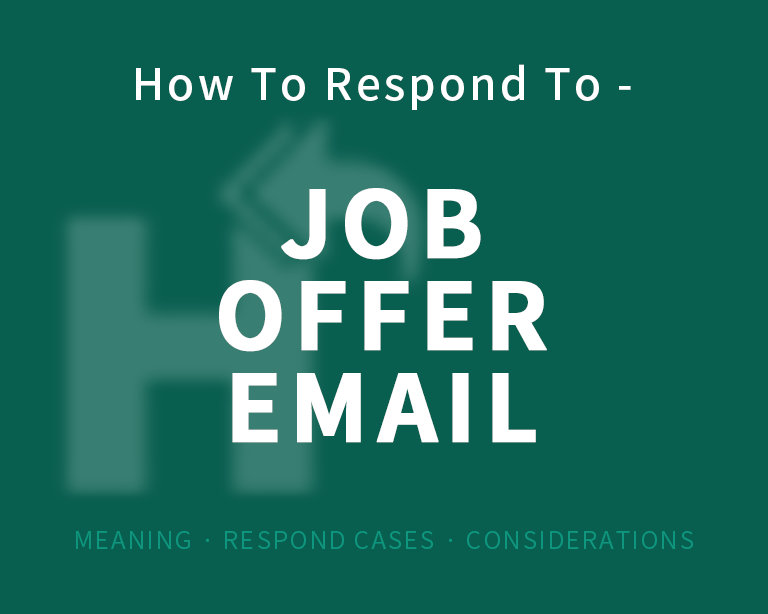The best way to respond to a job offer email

What does 'job offer email' mean?
A job offer email means that a company is extending an official offer of employment to you. They will specify the job title, salary, benefits, start date, and other key terms. It is a chance for you to formally accept or decline the role.
The best 3 ways to respond to a job offer email
- Thank the employer for the opportunity. Express your genuine appreciation for their offer and consideration. For example, you can say something like "Thank you for the job offer and for your belief in my ability to succeed in this role."
- Request a few days to review the details. Unless you are 100% certain you will accept the offer as-is, ask the employer if you can have a couple of days to thoroughly review the details. For example, "I appreciate the job offer and am very interested in the role. Would you mind if I take a couple of days to review the details of the offer before providing my formal acceptance?"
- Provide a sincere and professional acceptance or a thoughtful declination. If accepting, say something like "I am very excited to formally accept your job offer. Thank you again for your consideration, and I look forward to joining your team!" If declining, say something like "After careful consideration, I must regretfully decline your generous job offer at this time. Thank you again for your consideration."
What are the considerations when responding to a job offer email?
Some things to consider:
- Your level of interest and fit for the actual work and company culture. Only accept an offer if you are genuinely enthusiastic about the work.
- The compensation including salary, benefits, time off, bonuses, etc. Make sure the entire package meets your needs before accepting.
- Your other opportunities and options at this time. Do not feel pressure to accept the first offer you receive unless you are certain it is the right choice for your career.
- Future career growth and learning potential. Consider the possibilities for progressing in your role and developing new skills over time.
- Work-life balance and flexibility. Think about how the role will impact your personal life and priorities outside of work.
- Start date and training or onboarding process. Make sure you fully understand when you are expected to start and what will be required to get up to speed in the new position.
Other specific cases of job offer emails
Case 1: The initial job offer email is vague and lacking in key details. You can reply requesting a phone call to discuss the specifics before providing an answer.
Case 2: You have another promising opportunity in play you wish to consider. You can let the employer know you remain very interested but would appreciate an extension to review all options fully before committing to an answer.
Case 3: After consideration, you realize the role or company is not the right fit. Decline the offer graciously while expressing thanks for their time and consideration. Let them know you feel it is not fully aligned with your career goals or priorities at this point in time.
These types of replies should be crafted carefully based on your unique situation and relationship with the employer. But in all cases, remain professional, appreciative and thoughtful in your communications.
Summary
In summary, responding well to a job offer is crucial to maintaining a good impression. Take time to review details, ask questions, and evaluate how the role fits with your priorities. When ready to accept or decline, do so with sincerity, appreciation and in a professional manner. The hiring process reflects on both parties, so make sure all communications are handled with care. And remember, the choice is yours - select a job you will find genuinely fulfilling! The company is not the only one who gets to determine if there is a good match. You deserve a role where you can contribute fully and find purpose and meaning in your work.